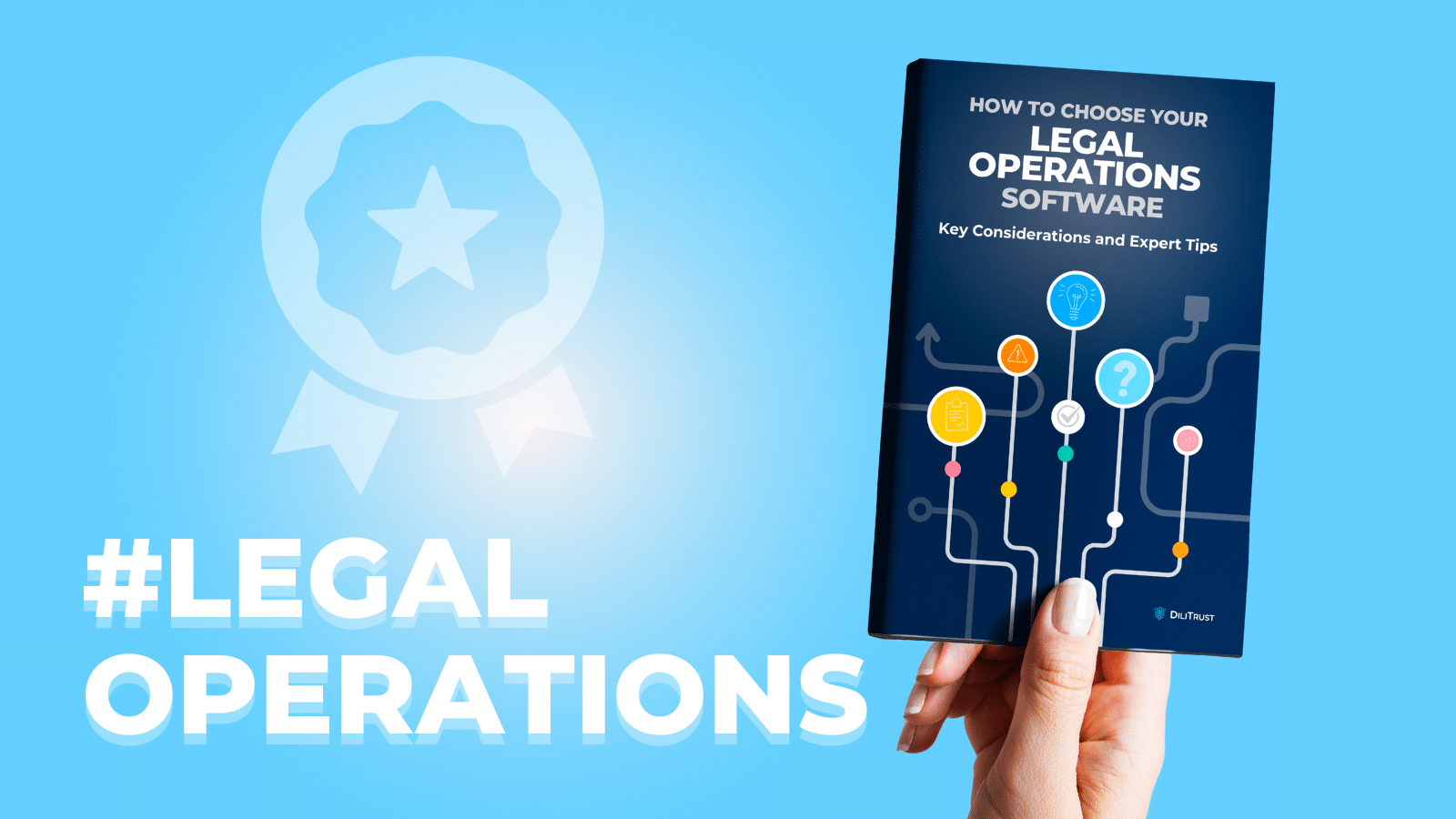Managing legal matters has always been a key responsibility for any legal team. Whether partially outsourced or handled internally, this can be challenging in modern times without the right tools in place. Matter management refers to the process of handling legal matters, including documentation, communication, and collaboration, in a structured and efficient manner. A well-implemented matter management software helps legal teams streamline their workflow, enhance collaboration, and maintain compliance with regulations, and ultimately improving business outcomes and productivity.
Matter Management Explained
Traditional Ways to Handle Matter Management
As with many other tasks, the traditional approach was manual. This means that legal teams once handled legal matters with files, folders, and a significant amount of paperwork. Paper-based filing systems were once the norm, but these methods are now obsolete. Over time, processes shifted to digital systems; nevertheless, spreadsheets and shared drives weren’t the safest solution. That’s where a matter management software comes in.
The risk of misplacing important documents, overlooking critical deadlines, and even experiencing data breaches is significantly reduced thanks to digital legal matter management solutions. It’s not just beneficial for legal teams but essential, as such software frees up time for teams to focus on substantive legal work rather than administrative tasks.
Matter Management vs. Case Management
While matter management and case management are often used interchangeably, they are two distinct concepts.
On one hand, legal matter management is a strategy that can be used by both law firms and businesses. It is common within organizations and encompasses various practices to handle legal issues. Matter management usually involves internal teams but can include external parties if deemed necessary. On the other hand, case management is a term typically used for large-scale litigation handled by law offices. These cases usually involve vast amounts of documentation, and when different law firms collaborate on a case, they rely on case management to track and handle the necessary documentation.
Overall, matter management covers a broader range of legal activities for in-house legal teams and extends beyond document centralization. It encompasses contract management, compliance, and regulatory matters, among others. Participants can open matters, track progress, and collaborate with external parties when required. Below, we explore some common features of these tools.
Matter Management Challenges for Legal Teams
Inefficiencies
Not only do legal teams receive requests from external teams and handle daily operations such as contract management, but they also manage their own projects, directly tied to their expertise. When you add matter management to the equation, things can quickly get messy without the proper tool to centralize tasks. This results in inefficiencies and can compromise opportunities or critical deadlines for the company.
Poor Data and Information
Since one thing leads to another, the lack of centralized information can result in inaccurate data and missing documentation. Working with the right numbers, names, deadlines, and other key details is essential for in-house counsel. The absence of structured information and reliable data causes mistakes and slows down everyone’s work. Hence, without a robust matter management tool and well-organized data, corporate governance can be severely jeopardized.
Messy Collaboration
One significant challenge legal teams (and pretty much any team in a company) encounter is a lack of visibility over projects. When it comes to matter management, some cases involve external parties, such as third-party counsel, in addition to all the internal collaborators. With such a complex network of participants and numerous matters to manage, a lack of transparency inevitably leads to bottlenecks, miscommunication, mistakes… and, of course, delays.
Compliance Risks
If there is one thing no company wants, it is non-compliance with laws and regulations. The legal landscape evolves quickly, and for companies operating on an international scale, that pace is even faster. When documentation is disorganized and information is exchanged solely via email, collaboration within legal teams becomes chaotic. Additionally, it increases the risk of data breaches and major errors, such as missing an important deadline. A study from the International Legal Technology Association (ILTA) found that 67% of surveyed law firms reported compliance failures due to disorganized systems.
Overall, the lack of an organized and structured matter management system can be costly for legal teams. Wasted time searching for documentation, failure to meet deadlines, regulatory breaches, and a frustrated legal department are just a few of the consequences. Fortunately, solutions exist.
? Learn from Real-World Application: An Example
Let’s say your legal team is managing a multi-jurisdictional merger. There are dozens of documents, deadlines and parties involved. Without the right matter management software, this could lead to chaos. With the right system, however, everything is centralized, deadlines are tracked and communication is smooth – even across borders.
Benefits of a Matter Management Tool
Choosing the right matter management tool will revolutionize the way legal teams work. Among the benefits, you’ll find:
Structured Project Management
- Matter Intake and Triage: Teams can track matter intake and gain a quick overview of key information such as the request date, deadline, and responsible party.
- Task Assignment and Management: Similar to a project management tool, tasks can be assigned to the necessary parties—including external ones—while setting priority levels.
- Real-Time Tracking: The right solution ensures you never miss a beat, thanks to instant notifications to keep everyone aligned.
Streamlined Workflows
Reliable Data
- Tracking Boards: Monitor all relevant activities, providing a comprehensive view of your matter’s progress at any time.
- Relevant Insights: The right software enables the tracking of key metrics like open matters, matter types, and complexity levels within a single dashboard.
- Informed Decision-Making: With access to centralized information, teams can identify inefficiencies and make data-driven decisions.
- Easy Reporting: With all information stored in one place, reports can be generated effortlessly, such as tracking time spent on each matter.
Enhanced Collaboration
- Secure Document Sharing: Eliminate risks associated with sending sensitive information via email. Documents are stored within the matter management system, accessible only to designated collaborators.
- Centralized Documentation: All necessary information is easily accessible, typically with a search feature. Legal matters are structured by case, allowing teams to locate up-to-date documentation effortlessly.
- Integrated Communication: Most tools offer built-in communication features, including automatic notifications and notes on different matters. These notes can be accessed by authorized collaborators (including external parties) to keep everyone aligned.
The plus: Personalized and AI-Powered Features are certainly in vogue and it goes for matter management tools too. More and more solutions now offer AI-powered capabilities, such as matter summaries and AI-generated status updates.
What Should Your Matter Management Solution Include?
There are key considerations when selecting a matter management tool, including security and user-friendliness. Among the essential features, your solution should include:
Centralized Document Management
A robust matter management system should have secure, cloud-based storage that enables legal teams to store, organize, and access legal documents effortlessly.
Task and Workflow Automation
An effective tool should support automated processes and workflows for various functions. For instance, it should delegate tasks to the right individuals, track deadlines, and send reminders and notifications.
Advanced Reporting and Analytics
The solution must help teams gain insights into efficiency and report findings to senior leadership. Comprehensive reporting should allow data visualization at both matter and global levels. This includes tracking time spent per matter, the percentage of matters closed and won, and other relevant metrics.
User-Friendly Interface
Adoption is key when implementing new technology. A matter management system should have an intuitive interface requiring minimal training. Mobile accessibility is also crucial, allowing legal teams to manage matters remotely and access key documents on any device.
Security and Compliance Features
Legal matters often involve highly sensitive information. A matter management solution should provide strong security features, including encryption, access controls, and compliance tracking. Compliance with industry regulations such as GDPR and HIPAA is essential.
Collaboration and Communication Tools
Your solution should enable an easy communication between internal and external stakeholders. Features like built-in messaging, real-time document sharing, and role-based permissions improve coordination.
Conclusion
In today’s fast-paced world, legal departments need more than just traditional tools—they need effective matter management systems that act as a central platform for their entire legal practice. Whether you’re using outside services or managing everything internally, the right matter management systems provide the control, visibility, and insights legal teams need to work smarter. These tools don’t just help manage legal matter management tasks—they also reduce spend, improve efficiency, and act as a center for collaboration and strategic planning. From financial tracking to smart automation, such solutions serve as a single source of truth across multiple matters, reducing manual work and enabling better use of standardized terms, document templates, and structured data. You may also see how integrating new technologies into daily practice helps legal professionals stay ahead, especially when dealing with cross-border cases or complex compliance requirements.
Finally, a well-chosen matter management software doesn’t just support your legal team—it enhances collaboration across departments, improves data accuracy, and increases overall business resilience. If you’re ready to boost your productivity, reduce risk, and empower your legal team, now is the time to learn more.
Want to learn more about DiliTrust’s Matter Management Solution?



